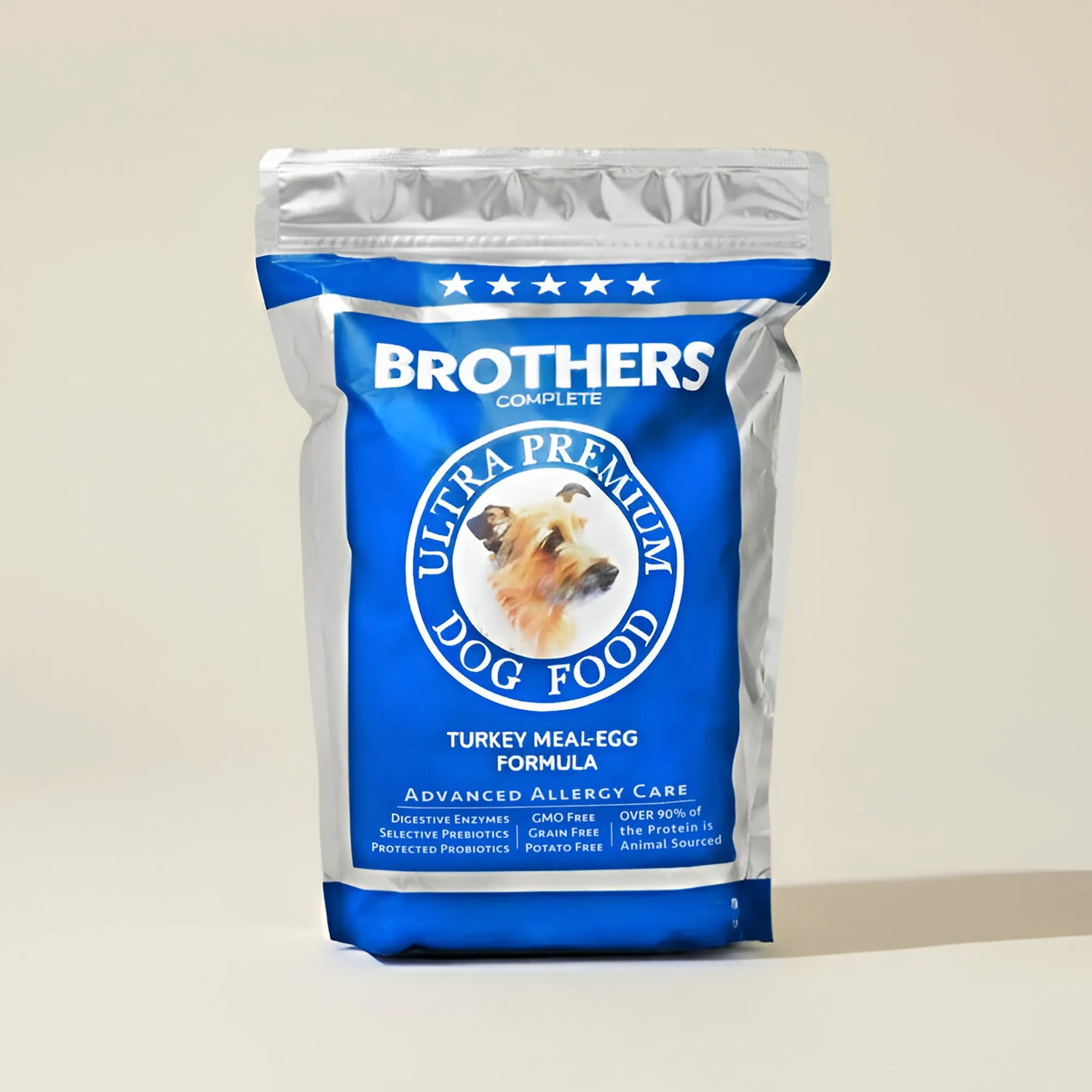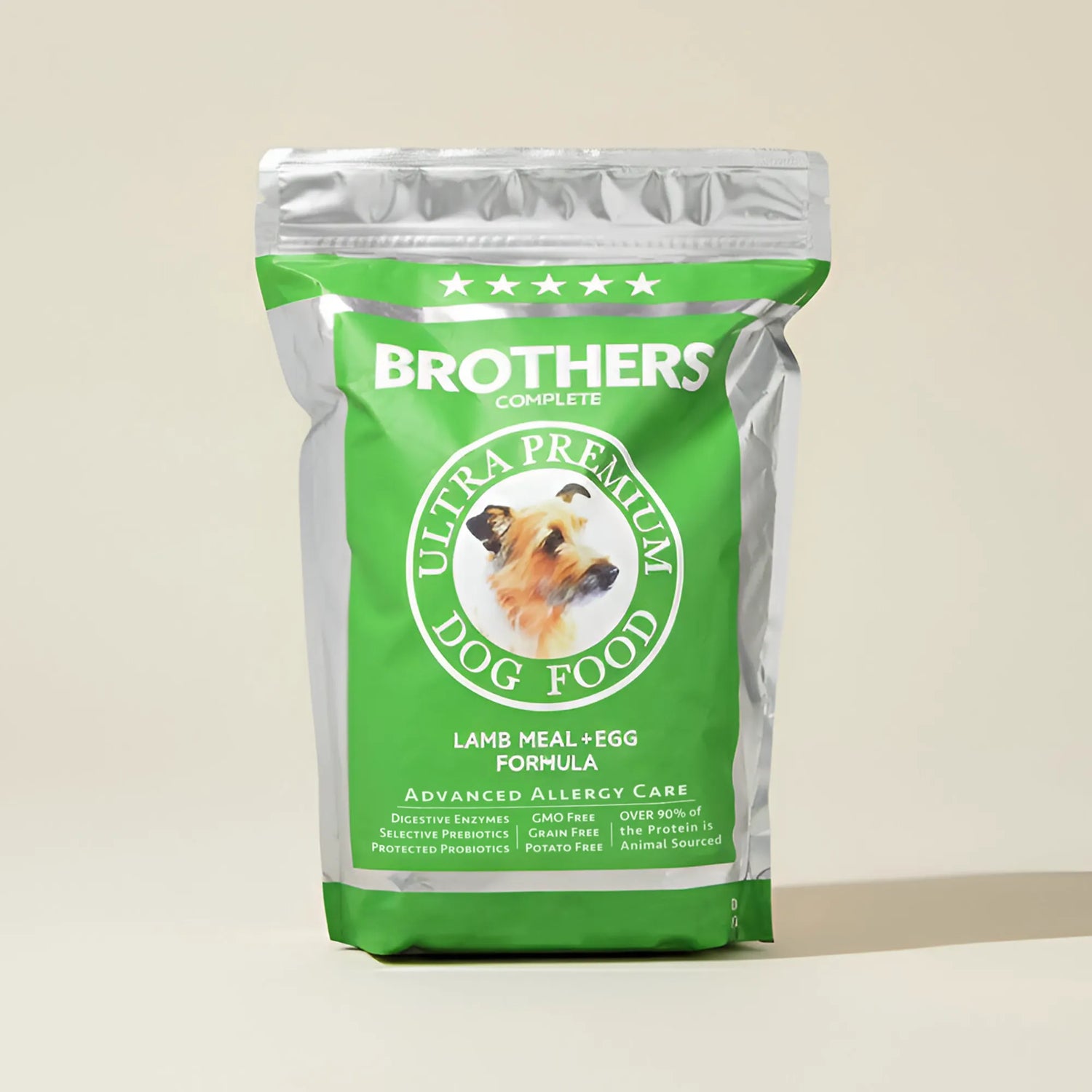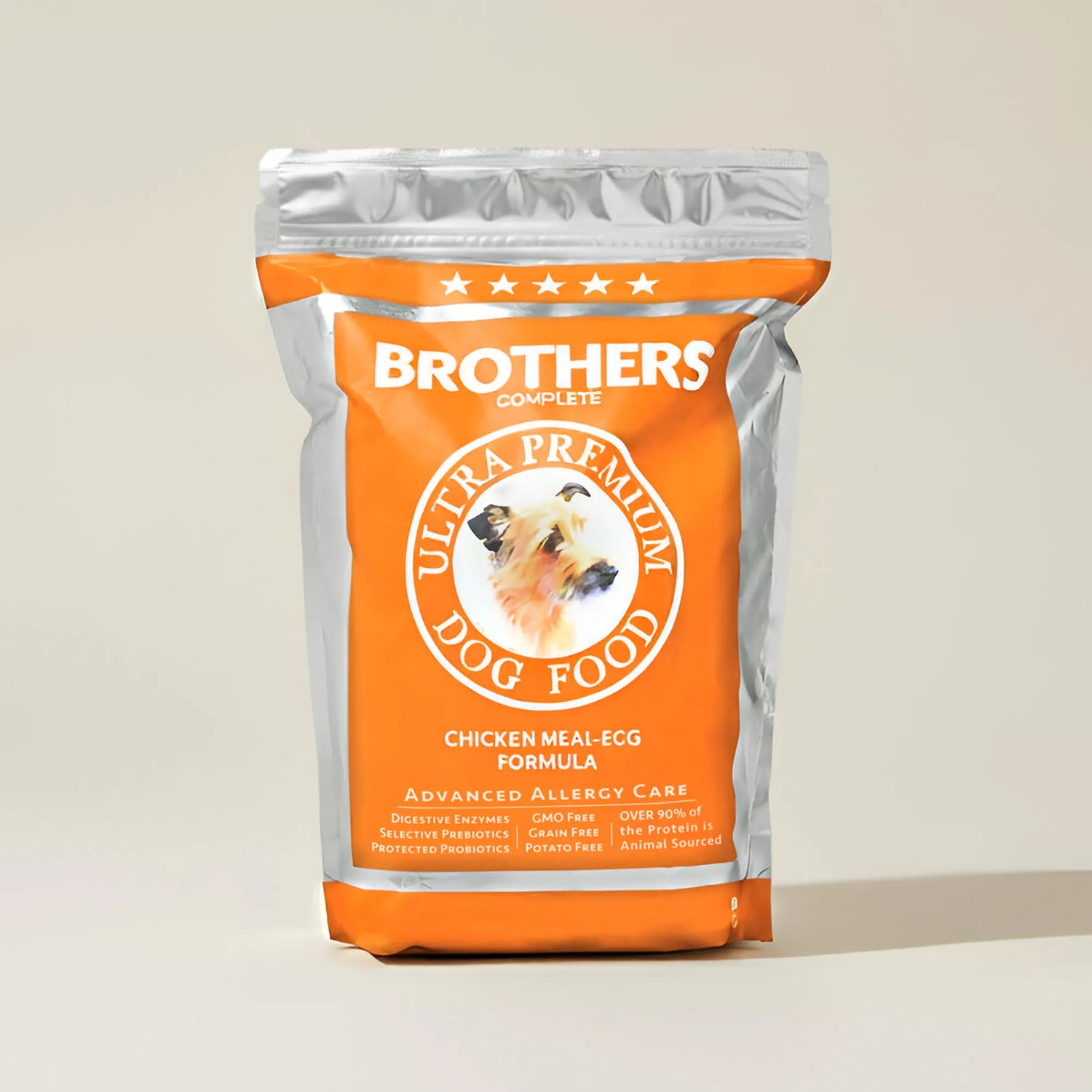
Best Diet for Senior Dogs
Summary:
As dogs age, their nutritional needs change — but that doesn’t mean they need less. In fact, older dogs often need more support, especially for digestion, immunity, and muscle maintenance. In this post, we’ll explore what the best diet for senior dogs really looks like, what makes it different from adult dog food, and how to help your older pup thrive well into their golden years.
Aging Dogs, Changing Needs
As your dog enters their senior years, their body shifts.
- Metabolism slows down
- Muscle mass begins to decline
- Digestive efficiency decreases
- The immune system weakens
- Joint stiffness or inflammation may start to show
According to VCA Animal Hospitals, senior dogs often require food that is:
- Easier to digest
- Rich in high-quality protein
- Lower in unnecessary carbs
- Supportive of joint, skin, and gut health
But not all “senior dog food” formulas actually do this. In fact, many lower protein and fat — which can lead to muscle loss, poor coat quality, and energy dips.
What’s the Difference Between Senior Dog Food and Regular Food?
The answer depends on the brand.
Some senior formulas:
- Reduce fat content to prevent weight gain
- Reduce protein (which can be a mistake)
- Add joint supplements like glucosamine or omega-3s
- Add fiber for easier digestion
But Cornell University makes it clear: the best diet for older dogs depends on the individual dog’s needs — not a “senior” label.
In general, senior dogs benefit from:
- High-quality animal protein to prevent muscle wasting
- Moderate fat for sustained energy
- Digestive enzymes + probiotics
- Anti-inflammatory ingredients
- Low-glycemic carbs to avoid blood sugar swings
- Fewer fillers, more functional nutrients
When to Switch to Senior Dog Food
According to the AKC, most dogs are considered “senior” around age 7 — though this varies by breed and size:
|
Dog Size |
Senior Age |
|
Small breeds |
8–10 years |
|
Medium breeds |
7–9 years |
|
Large breeds |
6–8 years |
If your dog is slowing down, gaining weight more easily, or having more digestive issues, it may be time to reevaluate their diet, not just their age.
What About Overweight Senior Dogs?
Many senior dogs struggle with weight gain.
But here’s the thing:
Weight gain in seniors is often not just from overfeeding. It’s from:
- Reduced muscle mass
- Poor digestion
- Low protein diets
- Too many carbs or fillers
- Inflammation slowing down metabolism
Instead of cutting calories and calling it a day, the best diet for overweight senior dogs should:
- Focus on lean muscle support (via protein)
- Limit sugar spikes (low glycemic index)
- Include gut support to improve nutrient absorption
- Be easy to digest and anti-inflammatory
Why Brothers Is Built for Seniors (Even If the Label Doesn’t Say “Senior”)
We don’t make a “senior” line — because every Brothers recipe is formulated for all life stages, including senior dogs.
Here’s what makes our formulas perfect for aging pups:
- 90%+ animal-sourced protein to maintain muscle
- Low-glycemic carbs that don’t feed fat or yeast
- Probiotics + enzymes to support aging digestion
- Anti-yeast, anti-inflammatory ingredients
- No corn, wheat, soy, or filler grains
Our food is designed to:
- Improve stool quality
- Ease food sensitivities
- Reduce joint and skin inflammation
- Support immune health as dogs age
- Provide clean, absorbable fuel for vitality in the later years
Final Thoughts: Getting Older Doesn’t Mean Settling for Less
Your dog may be slowing down — but that doesn’t mean they should feel worse.
The right food can:
- Support their joints
- Keep their digestion smooth
- Reduce allergy flare-ups
- Keep their coat soft
- Help them stay active longer
Because a senior dog’s diet shouldn’t be about reducing their food — it should be about upgrading their nutrition.
Want to feed your senior dog food that supports their body and their years?
Explore our gut-health-first, high-protein formulas at brothersdogfood.com
Sources
- AKC American Kennel Club: https://www.akc.org/expert-advice/nutrition/how-to-feed-the-senior-dog/
https://www.akc.org/expert-advice/nutrition/nutrition-and-supplements-for-senior-dogs/
- Cornell University College of Vetinary Medicine: https://www.vet.cornell.edu/departments-centers-and-institutes/riney-canine-health-center/canine-health-information/choosing-food-your-senior-dog
- VCA Animal Hospitals: https://vcahospitals.com/know-your-pet/feeding-mature-and-senior-dogs







